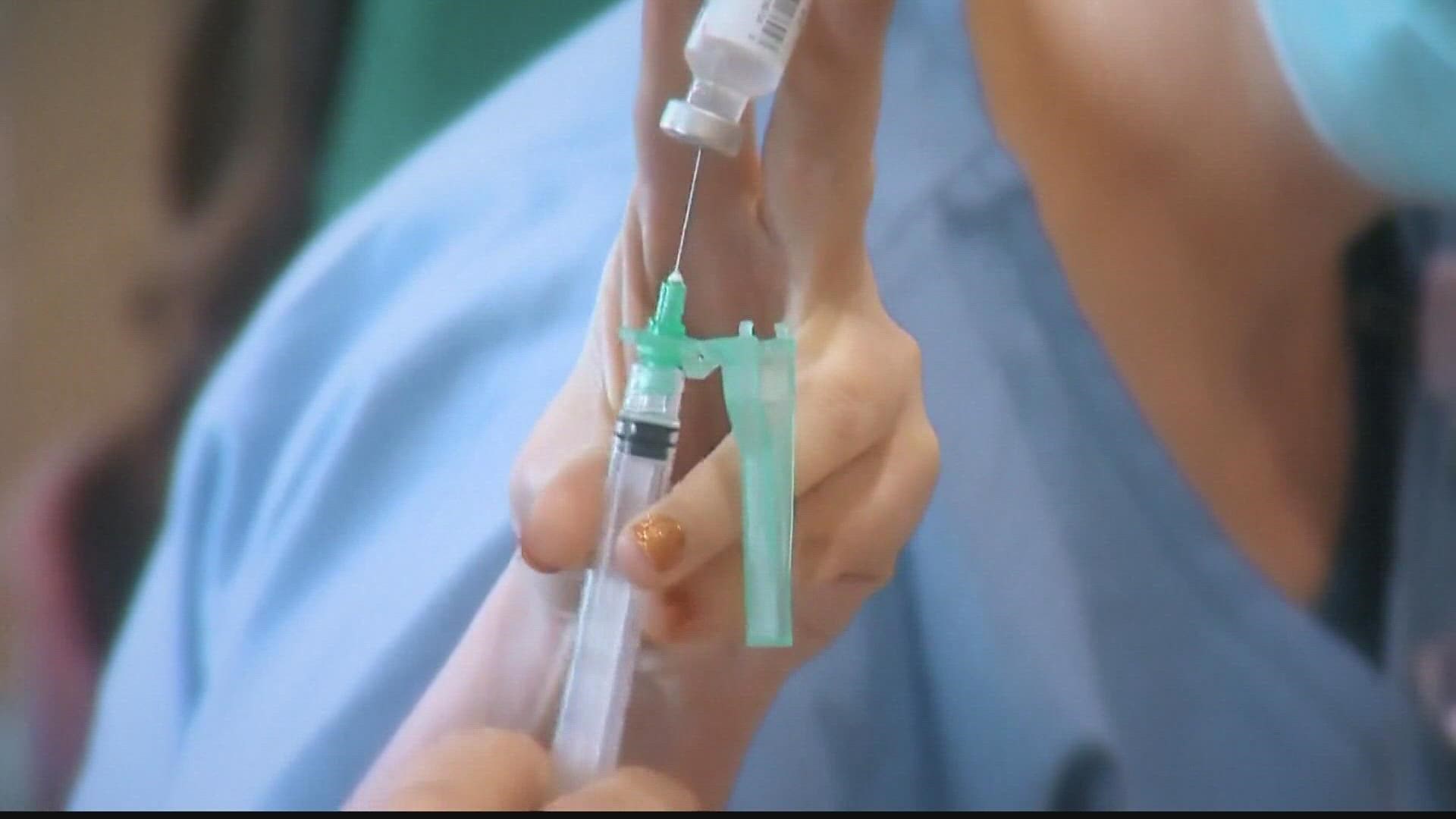ATLANTA — New Georgia cases are steeply declining, which is what we wanted to see after hitting a new peak with the omicron variant. Our daily average is now below 6,000.
We're also watching a rapid decline of hospital patients across the state with the virus. Right now, we are down to the 3,500 range, representing about 21% of all patients.
Deaths are our main COVID-19 metric focus right now. Averages are elevated and increasing. Since Monday's report, we saw just over 120 Georgians added to the count.
While the improvements we're seeing are promising, we've been here before with different surges. It has us asking if there will ever be an end to the pandemic.
As some states and schools decide to drop mask mandates, Medical Director of Infection Prevention for Wellstar Health System, Dr. Danny Branstetter, said you should continue to mask up and get boosted.
“We are seeing a decrease in number of infection, but if you look at our daily number of new infections, we are at a higher rate than any other time in any other surge still," Dr. Branstetter said.
In a tweet Monday night, Governor Brian Kemp called for an end to school mask mandates in the state.
Dr. Branstetter, as well as other local health experts, said now is not the time to let your guard down.
“We are seeing the deaths start to rise and that is the most lagging feature of these COVID surges," he said. "Despite omicron being a milder disease, it does kill those vaccinated and does kill those unvaccinated. So not taking extra precautions is something that I would advise against right now with the number of new infections we're still having in our community.”
He urges people to not only get vaccinated, but also boosted. He says the number of boosted patients with COVID-19 in Wellstar hospitals is extremely low, compared to that of unvaccinated and people vaccinated but not boosted.
"I think the next big hurdle for us as a society is learning how to live with this on an everyday basis," he said. "We're still going to see new infections going forward as part of the flu or common cold, but we're going to have to learn how to live with this. So it doesn't disrupt our lives."
He adds that while the omicron variant is having milder symptoms among people, it has still been deadly.
"We're still seeing hospitalization, severe illness and deaths and a high number of infections within our community. So those things are very important to keep in mind... milder overall, but not mild disease for everyone," he said.
In an interview with Reuters, CDC Director Dr. Rochelle Walensky agreed that now is not the time to drop mandates.
"I know people are interested in taking masks off. I too am interested. That would be one marker that we have much of the pandemic behind us," Walenksy said to Reuters in an interview. “Right now our CDC guidance has not changed ... We continue to endorse universal masking in schools.”
Walensky also told Reuters the CDC has always acknowledged that state and local jurisdictions are responsible for masking policies, but the agency's guidance remains unchanged.
"The biggest problem with COVID right now is the disruption that it's causing in supply chain and customer service and employment, schools, daycares," said Dr. Branstetter. "So those things, we got to get that under control and we have these tools that will allow us to do that quicker than we've ever had before in pandemic, that's the hope that we have."
This comes as other states including New Jersey, California, and Connecticut announced they plan to lift mask mandates for K-12 public schools and other indoor spaces as they try to "return to normalcy."
"So when are we gonna know it's the end? When we stop talking about it and stop having to recommend all these things," said Dr. Branstetter. "I think that we still got several months ahead of dealing with this to make that adjustment. But we have less time ahead of us than we've already come through. There's no doubt about that."
Dr. Branstetter says what keeps hopes up is the fact that we now have more tools than at the start of the pandemic; from vaccines to monoclonal antibody therapy - all proven to prevent hospitalizations.
He is also looking forward to the clearance of a vaccine for children under 5 years old.
"We see often not as many hospitalizations, not as many symptomatic illness in the younger age groups, thankfully, but they're also carriers and transmitters. So to help us get this under control. That's another tool that we're going to have. So it's another thing on the horizon that I'm excited about," he said.
11Alive also reached out to Clinical Associate Professor in Georgia State University's Department of Health Policy and Behavioral Sciences, Dr. Harry Heiman, to get his take on dropping mask mandates.
In a statement, he said:
"One of the unfortunate aspects of this pandemic is that we continue to move from crisis to complacency. While I am hopeful that we will continue to see a waning of the omicron surge in the US, too many people, including purported experts, continue to make decisions based on what they hope will happen next, rather than hoping for the best, while planning and acting based on the current reality and the continuing unpredictability of this ongoing global pandemic.
The desire to return to normal, though felt by all of us, is also what left us unprepared and exposed to the current surge and its record cases and high numbers of hospitalizations and deaths. It would behoove us to remain cautious as we move forward."
Dr. Branstetter reminds everyone to still wear their mask, wash their hands, watch their distance, and staying home if sick. Also, take advantage of the tools developed during the pandemic, including at-home tests.

